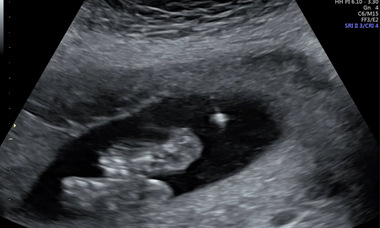Supplement your learning for Ultrasound meets genetics.
Join us for this engaging and informative course. Together with a panel of expert speakers from around the world, they will dive into the latest discourse surrounding ultrasound in the assessment of pelvic floor disorder. This course offers attendees a valuable opportunity to gain a comprehensive understanding of the new advances in this area and learn how to apply them in practical situations.
Learning Objectives:
-
Learn how to link fetal anomalies with genetic diseases
-
Learn how to identify subtle ultrasound signs associated with genetic anomalies
-
Learn how to guide the type of genetic assessment when facing a structural anomaly
-
Learn how to integrate genetic and imaging to predict perinatal outcome and long-term prognosis
Explore the topic before you attend our course
In order to make the most of this learning experience and help you achieve your learning objectives, we have prepared a path to guide you from the essentials to our course’s topics through ISUOG resources. The material below, will take you from the most basics to a more comprehensive view of Ultrasound meets genetics, some open to everyone and some available only to ISUOG members –some may even grant you CME points:
Some of these activities are exclusively available to our members. Become a member today.
ISUOG Guideline
UOG: Volume 49, Issue 6, June 2017, Pages: 815-816
VISUOG
Invasive Diagnostic Testing in Obstetrics: Amniocentesis and Chorionic Villus Sampling
Amniocentesis and chorionic villus sampling (CVS) are techniques in prenatal diagnostics, offering insights into fetal health, via assessment of analytes and genetics.
Patient Information
Ultrasound-Guided Procedures
This leaflet is to explain about ultrasound-guided procedures.
Amniocentesis
This leaflet is to help you understand Amniocentesis.
UOG Articles
A. Sotiriadis, E. Demertzidou, A. Ververi, E. Tsakmaki, C. Chatzakis, F. Mone
First published: 17 February 2025
L. Della Valle, M. Piergianni, A. Khalil, G. Rizzo, I. Mappa, B. Matarrelli, A. Lucidi, L. Manzoli, M. E. Flacco, L. Stuppia, F. D'Antonio
First published: 07 December 2024
Influence of uterine fibroids on cell-free DNA screening: important but not definitive
Z.-Q. Xiao, D.-Z. Li
First published: 01 October 2024
Uterine fibroids and non-informative cell-free DNA screening results
D. L. Rolnik, Y. Raymond, T. Lee, J. Ramkrishna, F. da Silva Costa, M. Menezes, S. Meagher
First published: 23 August 2024
F. Mone, D. L. Rolnik, A. Sotiriadis, R. J. Martinez-Portilla, A. Borrell
First published: 30 July 2024
Benefits of nuchal translucency measurement prior to 11–14 weeks' gestation
F. Jiang, D.-Z. Li
First published: 02 August 2024
B. B. Bet, M. A. Lugthart, I. H. Linskens, M. C. van Maarle, E. van Leeuwen, E. Pajkrt
First published: 27 February 2024
Learning Modules
Optimising deep phenotyping through fetal imaging
K.Kagan 2024
Non-invasive prenatal testing is global consensus possible
K.Bilardo 2024
Stuart Campbell lecture: exome sequencing as a first- tier test for fetuses with severe central nervous system structural anomalies
Y.Yaron 2024
Equivocal and marginal indications for exome sequencing
A.Sotiriadis 2024
Knowledge sharing to ensure ultrasound and genetic testing complement each other in prenatal diagnosis
M.Norton, L.Dugoff 2023
The present and future of prenatal diagnosis way beyond chromosomal analysis
L.Chitty 2022

